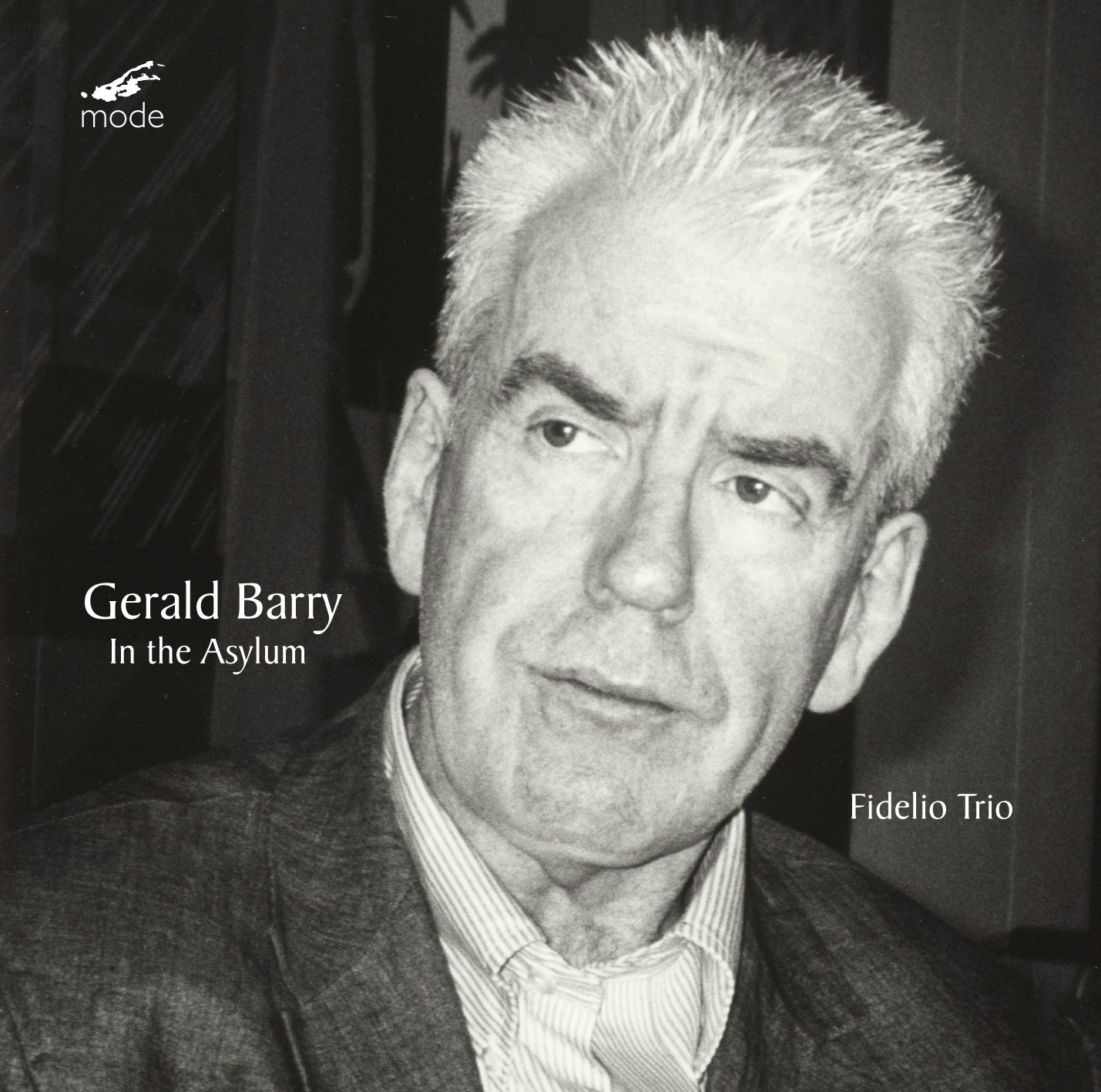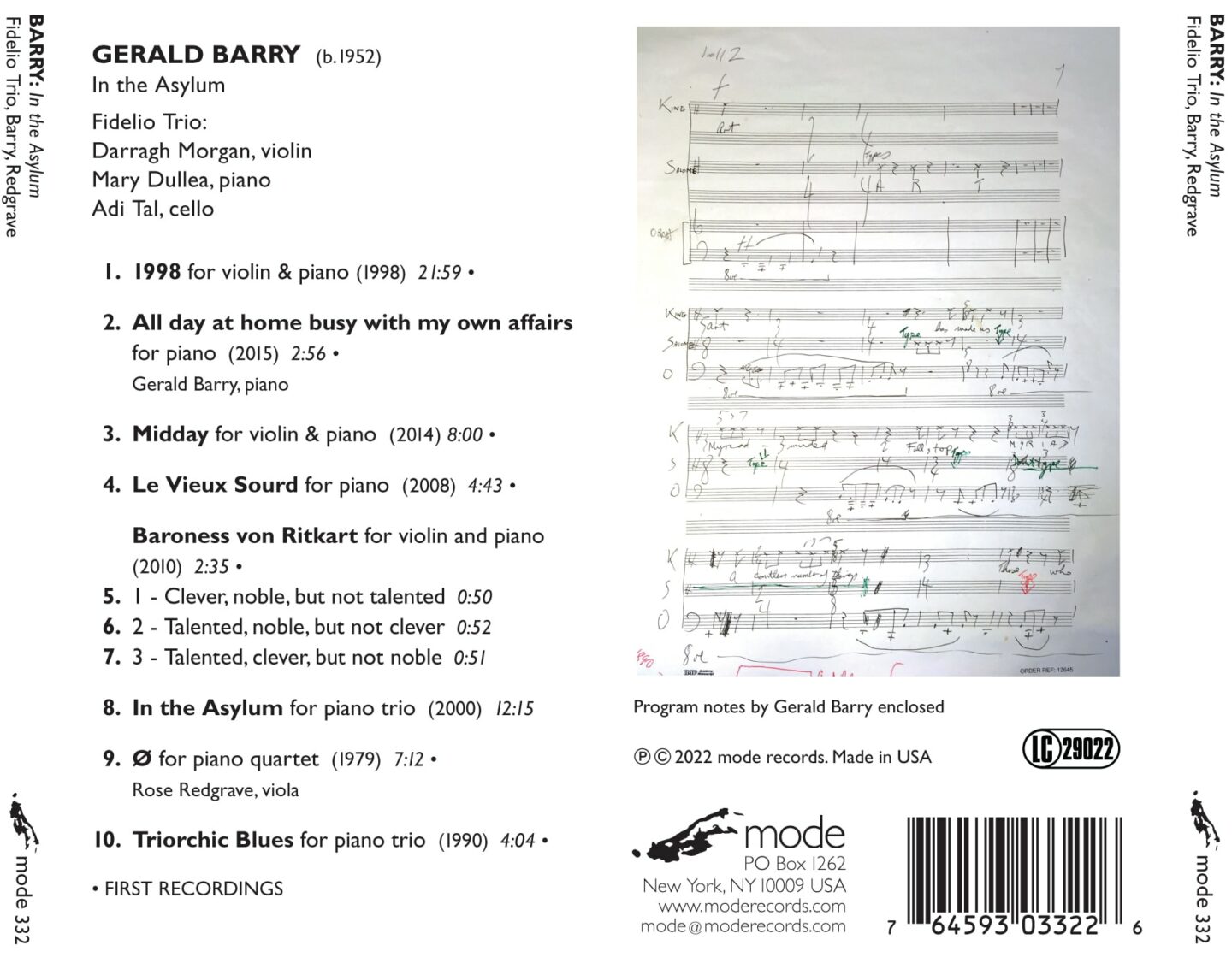1998 for violin & piano (1998) 21:59 •
All day at home busy with my own affairs
for piano (2015) 2:56 •
Gerald Barry, pianoMidday for violin & piano (2014) 8:00 •
Le Vieux Sourd for piano (2008) 4:43 •
Baroness von Ritkart for violin and piano
(2010) 2:35 •- 1 – Clever, noble, but not talented 0:50
- 2 – Talented, noble, but not clever 0:52
- 3 – Talented, clever, but not noble 0:51
In the Asylum for piano trio (2000) 12:15
Ø for piano quartet (1979) 7:12 •
Rose Redgrave, viola
10.Triorchic Blues for piano trio (1990) 4:04 •
• First recording
Fidelio Trio:
Darragh Morgan, violin. Mary Dullea, piano. Adi Tal, cello.
This album collects works for piano through piano quartet by Irish composer Gerald Barry. All, except for In the Asylum are first recordings.
Barry has had a long association with Darragh Morgan and for years both have wanted to record these works with the Fidelio Trio.
The music moves from the 1979 Rothko inspired Ø for piano quartet to the longest piece on the album, 1998, for violin and piano. Ø is as severely contained as 1998 is explosive.
In general the music is more concerned with pure material than color, and so may be played on any instruments.
The solo piano piece All day at home busy with my own affairs appears calmly at one with being alone, but is also used frenziedly in Barry’s opera Salome. All is not quiet on the home front.
There is the hallucinogenic piano trio, In The Asylum, the Le Vieux Sourd setting of Auld Lang Syne which would work perfectly on pub/bar pianos, Midday for violin and piano, a meditation on landscape, the melancholy Baroness von Ritkart, and the testicular whirlwind of Triorchic Blues.
Composer supervised performances by the Fidelio Trio (Darragh Morgan, Mary Dullea and Adi Tal) with guest artists Gerald Barry (piano on All day at home busy with my own affairs) and joined by Rose Redgrave (viola on Ø).
The very personal liner notes are by the composer.
Gerald Barry was born in Ireland in 1952. His operas have been staged at Covent Garden, Berliner Festwochen, Lincoln Center, Théâtre de L’Athenée Paris, with the Los Angeles Philharmonic, New York Philharmonic, Concertgebouw Orchestra, Britten Sinfonia and many others. His most recent work, From The Bitter Tears of Petra von Kant for Double Bass and Orchestra, was premiered by the Berlin Philharmonic in June 2022. His new opera, Salome, will be premiered in 2024.
The Fidelio Trio have received numerous Gramophone Magazine Editor’s Choice and were shortlisted for the Royal Philharmonic Society Award. They have appeared at Wigmore Hall, Shanghai Oriental Arts Centre, Casa da Musica (Porto), Phillips Collection (Washington DC), Huddersfield Contemporary Music Festival and Beijing Modern Music Festival. With a discography of over 30 releases they also often perform Beethoven Triple Concerto, recen tly with National Symphony Orchestra of Ireland and are Artistic Directors of their annual Winter Chamber Music Festival at Dublin City University.


